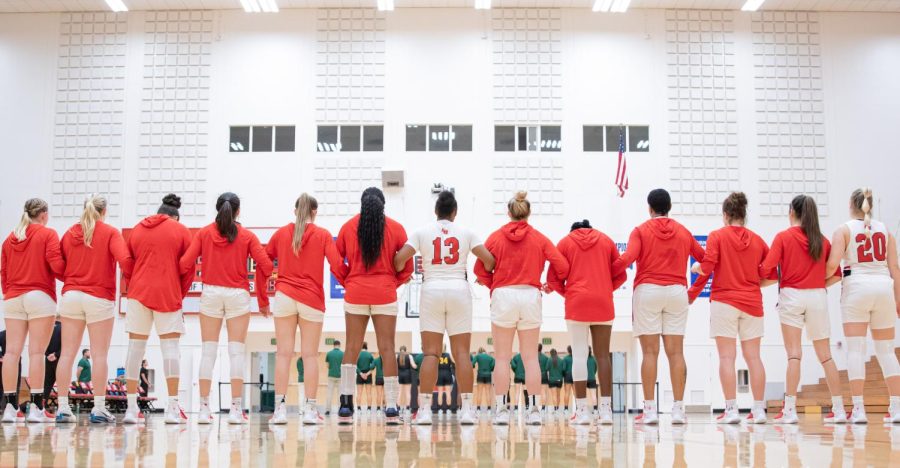
to infamous figures.
Photographer: Robert Raines
Last week we were once again shown the power of social media as the “Kony 2012” video exploded across the Internet, but the criticisms it quickly generated also serve as a reminder for the need to better analyze our sources of information.
For those of you who haven’t seen the 30-minute video, it is essentially a media campaign to raise awareness around the atrocities that have been committed in central Africa by the Lord’s Resistance Army and their leader Joseph Kony.
The rapidity at which the short documentary met that goal of creating awareness among online media users seemed to shock everyone, including the sponsoring organization Invisible Children. The Washington Post reported Ben Keesey, the chief executive of Invisible Children, “had been hoping for 500,000 views by May.”
What Keesey got instead was about 72 million more views on YouTube within a week of posting the video on Mar. 5.
For comparison, one of the first YouTube sensations, the “Numa Numa Guy,” has taken about five years to reach roughly 45 million views of its official video. “Kony 2012” has been viewed nearly double California’s population of approximately 37 million people.
The unfeigned surprise generated by the campaign’s sudden success illustrates the fact that we have yet to completely realize the power of social media and perhaps how to appropriately respond to the information it discloses.

on-ground campaign.
Photographer: Randi Coons
Closely following on the heels of that success came a number of negative commentaries regarding the organization and its presentation of the complex issue in central Africa.
Perhaps among the simplest and most repeated criticisms came via Twitter, “If you postin’ bout Kony, I feel bad for you son, he snatched 99 kids and your ‘status’ saved none,” tweeted a user under the name Leslie Chow Parody.
While the tweet clearly treats the matter with levity, it does resonate with the dissatisfaction many have expressed towards Invisible Children.
The New York Times reported one of the foremost points of contention against the organization was the amount of money it spent on its “officer salaries, filmmaking costs and travel, as opposed to on-the-ground programs.”
Others have pointed towards the relatively low two-star rating Invisible Children holds for accountability and transparency on Charity Navigator, a website commonly used to evaluate charities, and the organization’s refusal to register with the Better Business Bureau (BBB).
The BBB Wise Giving Alliance has posted its stance online, commenting, “While participation in the Alliance’s charity review efforts is voluntary, the Alliance believes that failure to participate may demonstrate a lack of commitment to transparency.”
Invisible Children responded to the criticisms directly on its website, “The organization spent 80.46 percent [of expenses] on our programs that further our three-fold mission.” Only 37.14 percent of their expenditures went towards their central Africa programs, which still fails to fully address the concerns raised.
In terms of its transparency and accountability the organization posted, “Charity Navigator gives Invisible Children three out of four stars. It gives our Programs its highest rating of four stars. Our Accountability and Transparency score is currently at two stars due to the fact that Invisible Children does not have five independent voting members on our board of directors — we currently have four. We are in the process of interviewing potential board members, and we will add an additional independent member this year in order to regain our four-star rating by 2013.” The same reasoning was used in regards to the BBB.
Despite the criticisms, it seems obvious that any time an organization can draw public attention to a human rights issue, people benefit.
However, the quick online reprisal to the video highlights the importance of questioning non-traditional sources of information. Invisible Children may have laudable goals but they may not fall in line with people’s expectations.
Social media can reduce the filter through which information is processed, leaving the job up to us.
Last year’s “Gay Girl in Syria” blog debacle serves an example of the uncontrollable nature of mass-produced — not produced for the masses — media. Tom MacMaster posed as a gay female blogger to bring attention to social problems in Syria, a country that has seen devastation in recent months. The popularity of his blog and the realization that it was a hoax seriously hurt the validity of the proposed arguments.
Non-traditional sources of information are extremely subject to criticism.
Whatever method is available to get informed on issues should be used, but we must ensure any source we propagate is researched with due diligence, including “Kony 2012.”
“Nothing is more powerful than an idea whose time has come,” the documentary proclaims prophetically.
However, what ideas are spread depends on us.
As we adjust to new sources of information and the power these sources hold, it is ultimately our individual responsibility to judge their credibility and truly give social media the power to create change.











